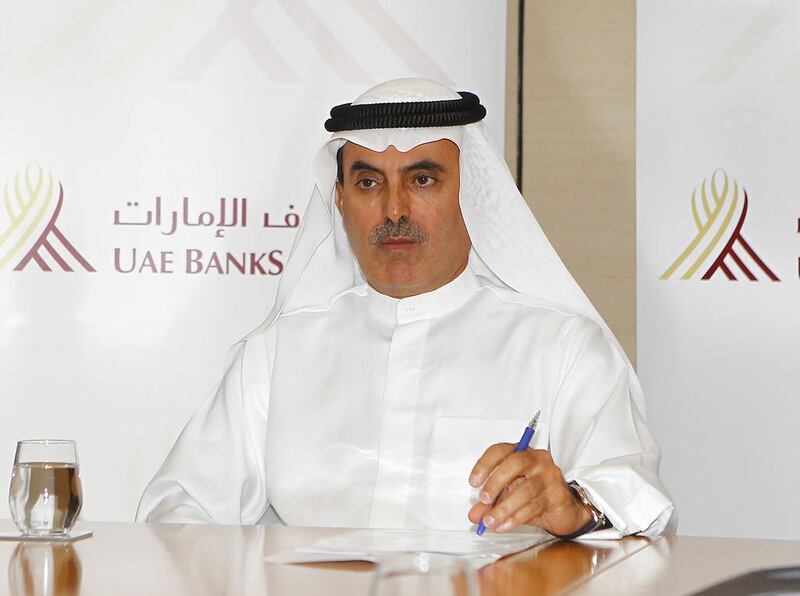UAE banks have agreed to halt criminal prosecutions for bounced cheques drawn by small to medium-sized business customers under a "rescue initiative" launched by the banking industry.
The plan, which will come into effect immediately, is a major departure for the UAE's financial system, which relies on paper cheques as security in business transactions. The plan has been prompted by the increasing levels of default in the SME corporate sector.
“Current concerns about the sustainability of SME and corporate lending and its effect on the economy as a whole has led the UBF [UAE Banks Federation] to take a more pro-active role in bringing together banks and borrowers to minimise incidents of total default,” said Abdul Aziz Al Ghurair, the chairman of the UBF, unveiling the initiative yesterday. “We believe that the modus operandi [MO] now launched will help to restore market stability, stem credit losses and maintain the reputation of the UAE as a place to do business.”
The scheme allows debtors a 15-day period to agree a restructuring scheme with creditors, followed by up to 90 days in which the banks will refrain from “pre-emptive action”, including prosecution in the courts or travel bans.
Mr Al Ghurair described the initiative as a “mini-insolvency law”.
The arrangements will apply to companies with minimum borrowing of Dh50 million or more, or turnover of more than Dh100m.
Debtors already subject to legal action can appeal under the new arrangements and seek a halt to legal proceedings, provided they can show “genuine commercial challenges” and an intent to repay.
Mr Al Ghurair declined to give exact details on the level of non-performing loans in the SME sector, but noted that SME lending accounted for only 3 to 5 per cent of total bank balance sheets.
However, there had been a rise in the level of “skips” – debtors leaving the UAE with unpaid bank loans – as the effect of low commodity prices and generally weaker economic conditions has hit the SME sector hard. SMEs account for about 60 per debt of economic activity in the UAE, according to recent figures from the economy ministry.
“If a lot of people run away to their own country, business will come to a standstill and that will endanger the economy. We want to show how the banking community can come together and support the economy. We will give customers time and space as long as they are genuine,” Mr Al Ghurair said.
The MO scheme has been agreed by the chief executives of all UAE banks and approved by the Central Bank.
“This has been discussed by the full board of the UBF and the Central Bank governor, and they have all blessed it. All banks are morally committed to support the initiative,” Mr Al Ghurair said.
The MO scheme could open the door for changes to the way the UAE uses cheques as security guarantees for loans. “This is a test. It is a voluntary arrangement and a self-imposed regulation is always a better solution that an outside regulation. This is a voluntary arrangement,” Mr Al Ghurair said.
Asked whether arrangements similar to the MO initiative might be extended to personal banking, he said: “Ask in a couple of months. That would involve millions of people”.
Most cases of SMEs getting into financial difficulty occurred in the wholesale food and oil services sectors, he said.
The MO arrangements involve a seven-step process over 15 days in which a “remedial credit co-ordinator” will receive a request for action, followed by meetings of debtor and creditors’ banks to assess the extent of stress.
A 75 per cent majority acceptance by creditors is required to adopt the measures of the MO, after which creditors will sign a “standstill agreement” on any further legal action against the debtor.
Creditors must agree that there are “genuine commercial challenges which led to the request for restructuring”, according to an outline of the MO process.
Mr Al Ghurair said that the continued appetite of the banks for further lending depended on the condition of the potential borrower and the economy. “We will lend as long as the economy is in good shape and the customer is in good shape. If the economy slows and the customer slows the bank will also slow its lending,” he added.
fkane@thenational.ae
Follow The National's Business section on Twitter





